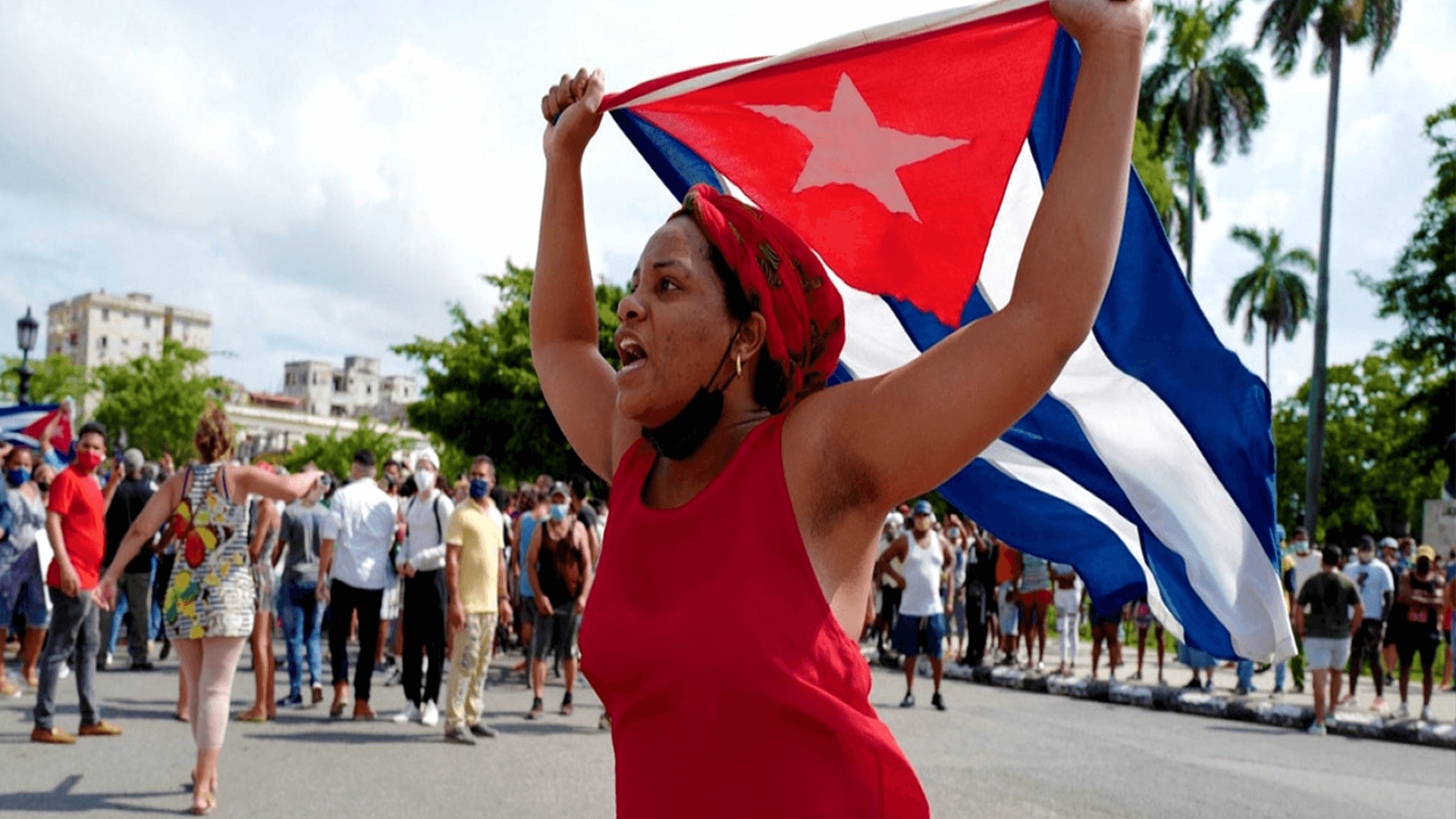NEW YORK (July 12, 2021) — The Human Rights Foundation (HRF) expresses its support for the Cuban people in their calls for freedom, and strongly condemns the regime’s response to yesterday’s historic protests, which included arbitrary arrests, nation-wide internet outages, and overt calls to violence from Cuba’s dictator, Miguel Díaz-Canel.
“Yesterday, the Cuban people made their voices loud and clear. They are no longer afraid, and will not let a regime that has robbed and deprived them of so much for six decades, continue to trample on their basic rights,” said HRF Chief Legal Officer Roberto González. “The Communist, military dictatorship in Cuba has brought nothing but misery and repression to millions of Cubans, and the international community must stand with the Cuban people as they call for a free and democratic future in their country.”
For over 60 years, the Cuban regime has engaged in a culture of corruption and criminality, wherein even the most peaceful protesters are punished for calling for civil liberties and fundamental freedoms. Thousands have been imprisoned, beaten, and executed for demanding freedom and the rule of law in Cuba, where there is no judicial independence, free press, or free and fair elections. Arbitrary arrests are frequently used as a tool to achieve the regime’s political goals of advancing Communism. While regime apologists have contended that Raúl Castro or Miguel Díaz-Canel would open up the island to the rest of the world, these authoritarian rulers, unsurprisingly, have continued to tightly control the economy, food prices, internet access, and freedom of expression and movement. Indeed, amid a deepening economic crisis, the government continues to impose price controls that apply to state-run companies, as well as private sector cooperatives, so that the government can control supply and demand.
It was within this context of repression and worsening food and medicine shortages that, on the morning of July 11, Cubans took to the streets of San Antonio de los Baños, a town southwest of Havana, to protest against the dictatorship. News of the demonstration spread quickly, and by the afternoon, thousands of Cubans had emerged to protest across dozens of cities throughout the country. These represent the largest protests against the dictatorship since the 1994 “Maleconazo,” and arguably the largest nationwide protests the regime has faced since assuming power.
The regime responded almost immediately and as defiantly and aggressively as it has throughout its history. Internet outages were reported all over the country, making it difficult for the hundreds of Cubans who were attempting to stream the protests, to share the news over social media. Several journalists and activists were prevented from leaving their homes to cover the protests or join them. And as police, special forces, and government supporters began pouring into the streets, Díaz-Canel sent a disturbing message on state-run national television, condemning the protesters as “sellouts to the [American] Empire,” calling the protests “provocations,” and openly calling for violence against anti-government protesters. He issued a call to all “revolutionaries” and “Communists” to move into the areas where the “provocations” were taking place, saying that “the order to fight has been given.” As of today, dozens of activists and prominent opposition members have been arrested, among them Movimiento San Isidro leader Luis Manuel Otero Alcántara and human rights activist Manuel Cuesta Morúa, and violent incidents involving regime supporters have been reported all over the country.
“Few things unmask the true nature of Cuba’s regime as yesterday’s desperate and violent call from Miguel Díaz-Canel for Cubans to repress their fellow citizens. After the collapse of all dictatorships in the aftermath of Operation Condor, Cuba remains the last Cold War-era military dictatorship in the Western Hemisphere. The world must continue to call for a transition to democracy in Cuba,” added González.
The Human Rights Foundation (HRF) is a nonpartisan nonprofit organization that promotes and protects human rights globally, with a focus on closed societies.
For interview requests or further comment, please email [email protected].
